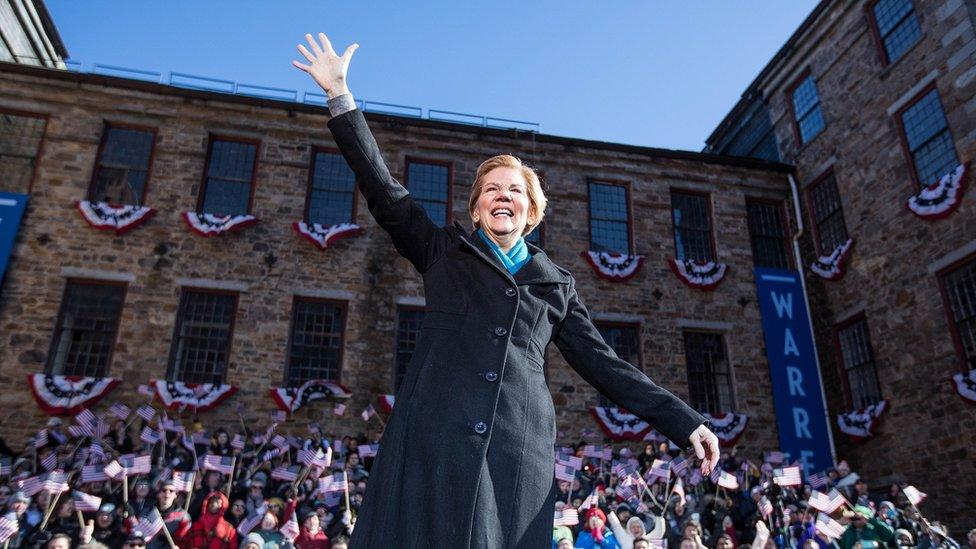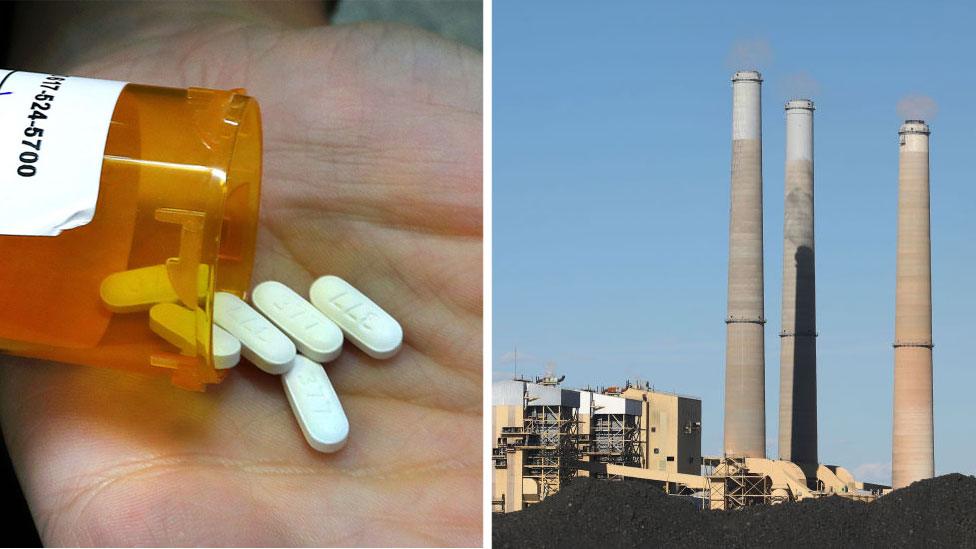US billionaires' group calls for wealth tax
- Published

The group says it is non-partisan, but praised Democratic presidential hopeful Elizabeth Warren's wealth tax idea
Some of America's richest people are urging US presidential candidates to back a wealth tax on the super-rich to improve inequality and climate change.
"America has a moral, ethical and economic responsibility to tax our wealth more," they said in a letter.
Signatories include investor George Soros, Facebook's co-founder Chris Hughes, and Molly Munger, daughter of billionaire Charlie Munger.
The group said they were non-partisan and not endorsing any candidate.
The open letter said, external: "A wealth tax could help address the climate crisis, improve the economy, improve health outcomes, fairly create opportunity, and strengthen our democratic freedoms. Instituting a wealth tax is in the interest of our republic."
Among the 18 were a descendant of Walt Disney and the owners of the Hyatt hotel chain. Many in the group have been associated with progressive initiatives on issues such as climate change and the growing wealth gap.
The letter pointed out that fellow billionaire Warren Buffett has said he is taxed at a lower rate than his secretary.
Distrust
While the group did not back a particular candidate, it praised a proposal by Democratic presidential hopeful Senator Elizabeth Warren that would raise taxes on those with more than $50m, a measure that would affect the 75,000 wealthiest families. She estimated that it would raise $2.75tn over 10 years.
The letter alluded to support among Democratic presidential candidates for higher taxes on the super-wealthy, including Pete Buttigieg and Beto O'Rourke.
Of about 40 countries, the US is the sixth highest in terms of wealth concentration, according to data from the Organization for Economic Co-operation and Development.
Taxing the super-wealthy "would slow the growing concentration of wealth that undermines the stability and integrity of our republic," the letter said.
It added: "Today, major policies seldom come to pass without the prior support of wealthy elites or other wealthy interests. Division and dissatisfaction are exacerbated by inequality, leading to higher levels of distrust in democratic institutions-and worse."
US president Donald Trump proposed a one-off wealth tax in 1999 to cut the national debt, but did not make it part of his election policy.
- Published4 February 2020

- Published13 February 2019